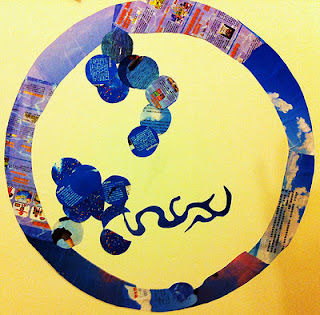This library will serve as a public and a school library, and it will be located at a new school to be opened in September 2014. This is a concept for library services that I have been thinking about, and writing about for some time. From the archives...
"As schools are renovated, redesigned or built new, physical EduKARE elements could be built into them. Community halls, recreational facilities, health clinics, libraries, satellite police stations, social service agency offices... these could be built in to the new building reducing cost of maintaining multiple facilities. Shared costs between agencies and school boards in providing these collaborative service spaces would save money. Thinking way outside the box, why couldn't senior citizen facilities share the same buildings as well? Sugatra Mitra is connecting senior citizens with the time and so much more to offer our youth in a global context; why not bring his "granny cloud" concept to every school? If we can connect significant others to kids in a global context, surely we can make the connection locally within our schools."





